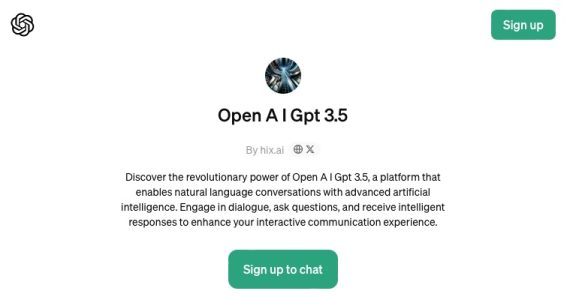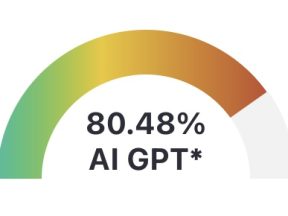Content marketing is foundational for many businesses, especially those seeking ongoing customer relationships.
Producing content, however, has changed since OpenAI released ChatGPT 3.5 in November 2022. Generative AI has made creating content faster, easier, and relatively less expensive. But it has not necessarily made content better.
Here’s why.

ChatGPT 3.5 can create content faster, easier, and cheaper. Is it better?
Nothing New to Say
Circa 2024, generative AI does not produce new ideas or even develop its own conclusions. Rather, it regurgitates information that it has indexed.
Generative AI is excellent for some tasks. For example, gen-AI search results often answer a query on-site, which is handy for users but not website owners.
However, enter a generative AI prompt to produce content, and you can be certain it will not offer anything new. Instead, it will produce an article similar to everything else on the topic.
Careful prompting and editing help, but lack of originality is a fundamental problem with using generative AI for content marketing.
No Reason to Rank
In 2024, Google says it does not penalize websites for using AI-generated content.
Nonetheless, if the content your company publishes is the same as everything else online, Google and other search engines will have no real reason to rank yours.
Search engines want to rank content demonstrating expertise, experience, authoritativeness, and trustworthiness. Thus, just taking the output from a generative AI verbatim may not lead to content that deserves to rank.
Not Your Brand
A key element of successful content marketing is a consistent, distinct brand voice that resonates with the audience.
Men’s clothier Mr Porter is a good example. Its “The Journal” blog publishes original profiles and apparel suggestions with an opinionated, modern vibe. AI-generated content might miss these nuances, leading to content that feels generic or disconnected from the brand’s identity.
Put another way, AI might not capture your audience’s needs, preferences, and feedback as human-created content can.
If a company has built a reputation for being a bold, strong brand that supports environmental causes, a middling composition could change customers’ perceptions of the business.

Mr Porter’s “The Journal” publishes original, opinionated articles on men’s apparel, such as this profile of an NFL player.
Not Accurate
Large language models and other AI tools routinely produce inaccuracies.
For example, in August 2023, the Associated Press published an article titled “Chatbots sometimes make things up. Is AI’s hallucination problem fixable?”
“Spend enough time with ChatGPT and other artificial intelligence chatbots, and it doesn’t take long for them to spout falsehoods,” wrote the AP’s Matt O’Brien.
“Described as hallucination, confabulation or just plain making things up, it’s now a problem for every business, organization and high school student trying to get a generative AI system to compose documents and get work done.”
The most egregious have come more recently from Google’s Gemini and Adobe’s Firefly.
In February 2024, Gemini made headlines when it all but refused to produce images of white people because it had been programmed with diversity in mind. This programming resulted in wildly inaccurate images, which led Google Chief Executive Officer Sundar Pichai to send an email on February 27, 2024, ridiculing Gemini for its obvious bias.
In March 2024, Adobe’s Firefly reportedly produced historical images favoring diversity over truth.
Content marketers need to be on the lookout for “hallucination” and bias.
Not Your Content
Copyright infringement is an emerging problem for AI-generated content in two ways.
First, there are now legal fights over whether OpenAI or Google has the right to train models using copyright-protected materials. The New York Times’ lawsuit against OpenAI and Microsoft is perhaps the leading example. Courts will resolve these copyright issues, but the outcome could impact the use of gen-AI for content production.
Second, AI content generators could be plagiarizing. Plagiarism detection software found that about 60% of the copy ChatGPT 3.5 produces is plagiarized, according to a February 2024 Axios report.
Content marketers should check any AI-written copy before using it.





